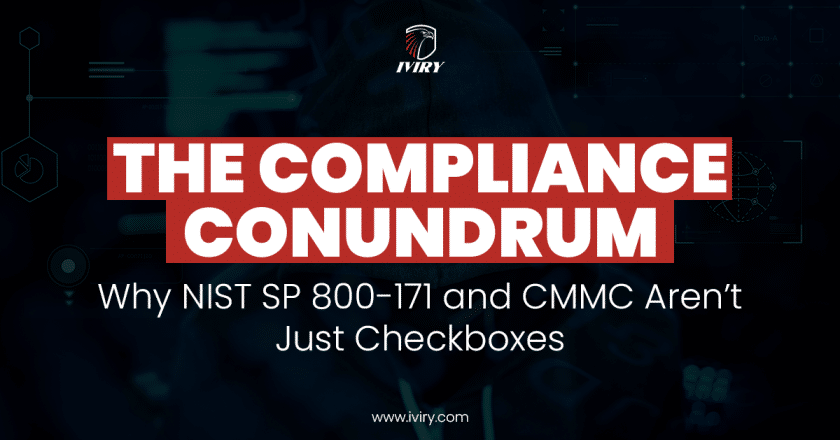With the Cybersecurity Maturity Model Certification (CMMC) 2.0 updates gaining traction, defense contractors are eagerly awaiting clarity on the timeline for full implementation. The Department of Defense (DoD) is moving toward enforcing CMMC requirements for contractors within the Defense Industrial Base (DIB) to protect sensitive federal information. However, there are several stages in the rollout that contractors need to be aware of to prepare effectively.
In this post, we’ll break down the potential timeline for CMMC requirements, recent developments, and key dates that contractors should monitor to ensure compliance readiness.
The Path to CMMC: A Brief Timeline Recap
The CMMC framework has undergone a few revisions, with the shift to CMMC 2.0 simplifying and refining the requirements:
- 2020: The initial CMMC model was released, introducing five maturity levels and mandatory third-party assessments.
- 2021: After industry feedback, the DoD announced CMMC 2.0, condensing the model into three levels and eliminating some requirements for self-assessment.
- 2024: The DoD released the Final Rule for CMMC, setting the foundation for implementation and compliance in federal contracts. However, further updates are anticipated, with the December 2024 ruling expected to finalize the CMMC framework.
These milestones reflect the DoD’s ongoing commitment to cybersecurity in the defense supply chain, with a phased rollout to ease contractors into compliance.
Key CMMC Timeline Stages to Watch
Several phases mark the CMMC implementation timeline. The following projected dates and deadlines may shift, so staying informed and connected to reliable sources, such as the DoD or industry advisors, is critical.
December 2024:
The DoD’s anticipated update in December 2024 is expected to finalize remaining details of the CMMC 2.0 requirements. Defense contractors can expect clearer guidelines on levels, assessment processes, and deadlines.
-
Early 2025 – Rule Publication:
Following the December update, the Final Rule will be published in the Federal Register. At this stage, CMMC requirements become official, and contractors will gain a more defined understanding of their compliance obligations based on contract types and information sensitivity.
Mid-2025 – CMMC Requirements in Contracts:
The DoD plans to phase in CMMC requirements across new defense contracts by mid-2025. This phased approach will allow contractors time to adjust and secure necessary certifications before full enforcement. Companies handling sensitive information, particularly Controlled Unclassified Information (CUI), should prioritize obtaining certification.
2025–2026 – Gradual Enforcement Across the Defense Industrial Base:
While all contracts may not immediately mandate CMMC compliance, contractors should expect a gradual but steady integration of CMMC clauses into more contracts through 2026. Contracts with higher sensitivity levels or those related to mission-critical DoD operations will likely see CMMC requirements implemented first.
2026 and Beyond – Full Enforcement:
By 2026, the DoD aims to have CMMC requirements embedded across all new contracts within the DIB. This means that any defense contractor without the required certification will face challenges securing new contracts. Meeting CMMC standards will become essential for any contractor involved with the DoD supply chain.
What Contractors Should Do to Prepare
To avoid setbacks or lost opportunities, contractors need to be proactive in preparing for the CMMC timeline. Here are key steps that can help companies stay ahead:
Engage with CMMC Consultants, like Iviry:
Many companies are turning to CMMC-AB Registered Practitioner Organizations (RPOs) or CMMC consultants to help guide them through the process. Certified consultants provide insights on requirements, assist with implementing necessary controls, and help prepare for assessments, particularly for higher CMMC levels.
Understand Your Required Level:
Determine if your organization will need Level 1 (basic), Level 2 (advanced), or Level 3 (highly secure) certification based on the sensitivity of information handled. Aligning your operations with the appropriate level now will save time and effort when requirements become mandatory.
Conduct a Readiness Assessment:
Partner with a consultant, like Iviry, to perform a gap analysis to understand your current compliance position relative to the requirements for your anticipated CMMC level. Identify areas needing improvement and prioritize critical upgrades, such as securing access controls, logging, and encryption measures.
Establish a Continuous Monitoring Strategy:
Security is not a one-time achievement. Implement continuous monitoring tools to maintain ongoing CMMC compliance, mitigate potential risks, and ensure timely updates of your cybersecurity posture.
Document Security Processes:
Proper documentation is key for CMMC assessments. Ensure that all security policies, procedures, and configurations are documented and organized. This documentation will facilitate smoother audits and demonstrate your organization’s readiness for certification.
The CMMC timeline emphasizes the DoD’s commitment to safeguarding sensitive defense data across the supply chain. With full implementation expected by 2026, contractors should prioritize cybersecurity improvements and certification planning now to remain competitive in the defense market.
Proactively addressing CMMC requirements will not only help secure contracts but also build a more resilient and trustworthy cybersecurity posture that benefits both contractors and the DoD. Stay connected to the latest developments, and leverage this time to build robust security practices that will position your organization for compliance success.




